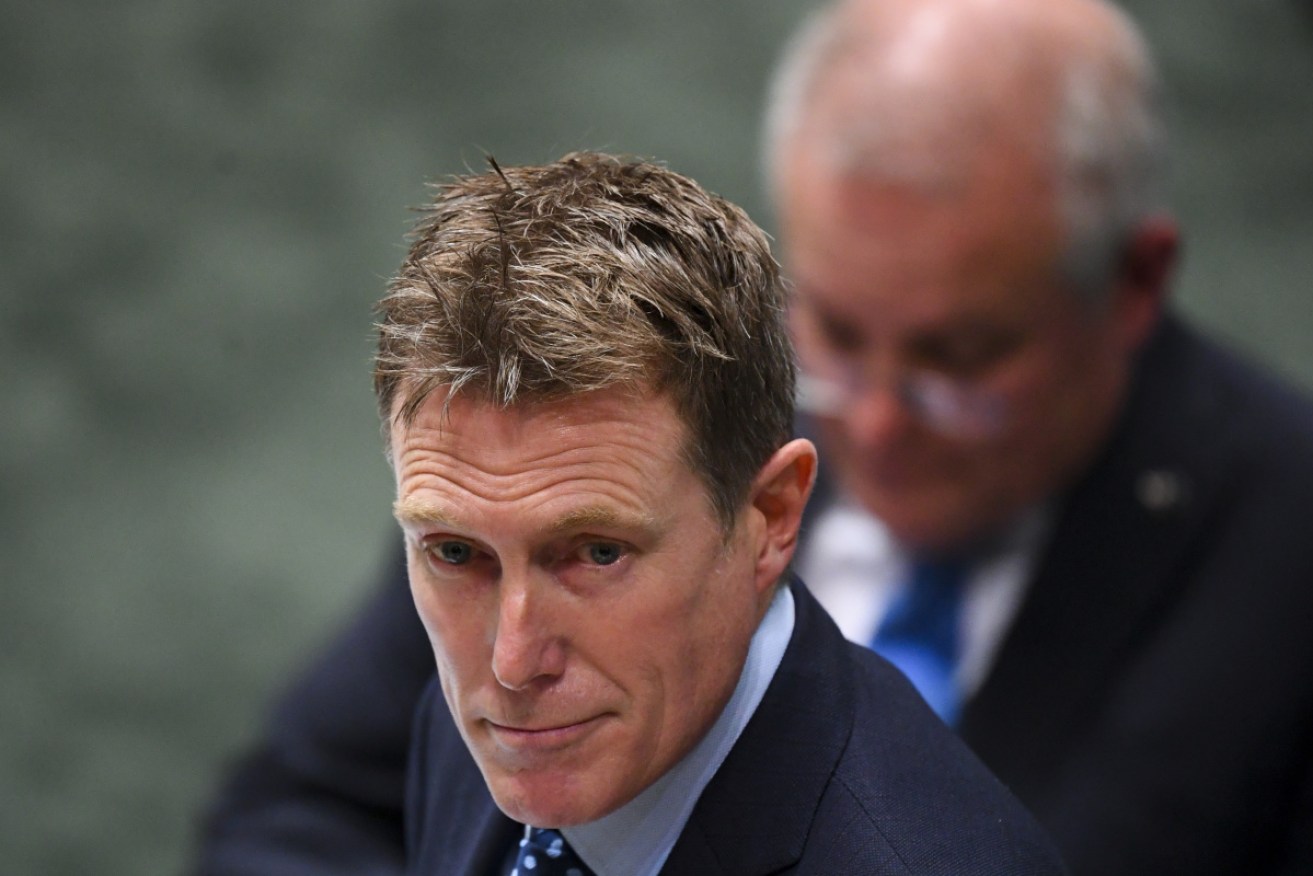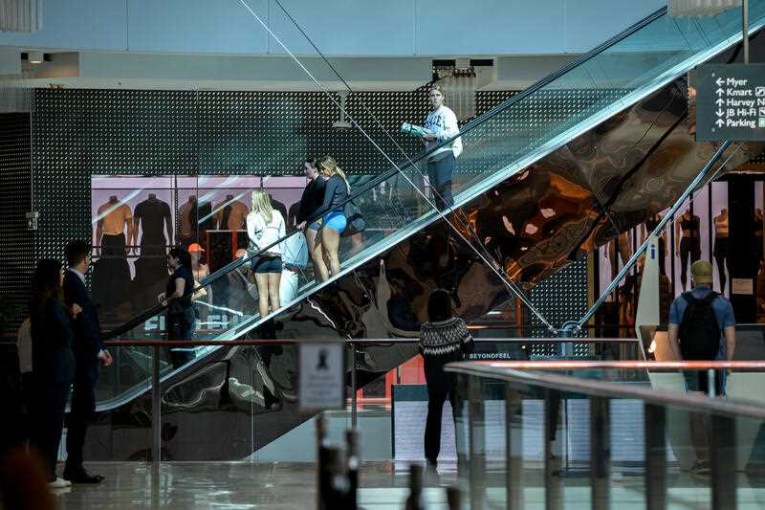‘Attack on democracy’: Government blocks Christian Porter ‘blind trust’ inquiry


Christian Porter won't face a parliamentary investigation over accepting anonymous legal fees. Photo: AAP
The Coalition government has blocked an inquiry into donations to Christian Porter made through a blind trust, in a procedural move the opposition blasted as a “mockery” that had never occurred in the history of Parliament.
Despite Speaker of the House, Tony Smith – a Liberal MP – deeming there was a “prima facie” case to refer Mr Porter to Parliament’s privileges committee, the government voted to shield the former attorney-general from further scrutiny.
“For 120 years this has been a key protection against corruption. Today the Morrison-Joyce government abandoned this principle,” Labor’s Tony Burke said.
“This is a disgraceful, shameful moment in Australian political history.”
On Monday, Mr Burke – the manager of opposition business – had asked that Mr Porter’s blind trust issue be examined by the privileges committee.
Mr Porter resigned as Minister for Industry last month, after declining to publicly name the donors who had contributed to his legal fees for a defamation case against the ABC.
Labor had wanted Parliament to consider whether this breached rules around declarations of gifts or interests for politicians, which must be publicly listed.
Tweet from @AlboMP
Mr Porter said his case had become a “distraction” for the government, but said the trustee had reassured him no money had come from lobbyists or prohibited foreign entities.
Mr Smith, the Speaker of the House of Representatives, considered the request and said on Wednesday afternoon he was “satisfied that a prima facie case has been made” for Mr Porter’s case to be referred to the committee.
But the government opposed a subsequent motion moved by Mr Burke to refer the case.
Labor claimed it was the first time in the history of Australia’s federal Parliament that this had occurred.
“As far as I’m aware … since federation there has never been a time where the house has voted down a resolution after precedence was given,” Labor leader Anthony Albanese claimed.
“In opposing the motion, the government is saying ‘don’t even look, just pretend and walk away’.”
Mr Burke claimed the disclosure system would be “obliterated” unless Mr Porter’s blind trust issue could be scrutinised further.
“We need to oppose a system where members of Parliament can keep secret who is giving them money for personal bills,” he said.
But Defence Minister Peter Dutton, the government’s leader of the house, said the Coalition opposed the specific referral of Mr Porter.
Instead, he said he’d written to the the chair of the privileges committee, Liberal MP Russell Broadbent, asking for clarity on how politicians should declare contributions such as that received by Mr Porter.

The letter sent by Mr Dutton.
In the letter, Mr Dutton asked for “clarification” on “the receipt of anonymous or crowd funded donations by way of paying for legal expenses”.
Government sources said they believed Labor’s proposed referral was too narrow, and the Coalition wanted the wider issue of anonymous donations to be examined.
“There is a sensible discussion to be had at the appropriate time between the government and the opposition to see what the appropriate next step might be,” Mr Dutton said in a speech to Parliament.
He went on to refer to crowd funded donations raised by Greens senator Sarah Hanson-Young, for a defamation case of her own.
Mr Dutton complained several donations given to Senator Hanson-Young were publicly listed as coming from donors named as “John 51884010”, “Anna B.”, and “E.T”.
The minister claimed there was “no transparency” in that process, and said it needed clarification.
However, Senator Hanson-Young said nearly all the donations she received were actually under the $300 cap for mandatory disclosure, and that she decided voluntarily to list them all on her disclosure forms.
“There were 1800 donations. 1600 were under $100 and more than half of all donations were under $20. Eight donations were above the disclosable $300 threshold, the highest of which was $1000,” Senator Hanson-Young told The New Daily.
“It is in stark contrast to large donations given in secret and hidden from the parliamentary register and the Australian public. I have declared all donations in the spirit of members’ and senators’ interests and Mr Porter should do the same.”
Neither Mr Porter’s legal fees nor the amount received into his blind trust have been publicly disclosed, but Labor claims it could be as high as $1 million.
Labor and the Greens reacted with swift outrage to the government voting down Mr Porter’s referral to the privileges committee.
Greens leader Adam Bandt blasted the move as “appalling” and a “profound attack on democracy”.
Mr Burke claimed it would pave the way for other MPs to obscure donations in trusts, and make a “mockery” of disclosure requirements.
“With this vote Mr Morrison has signalled to all his MPs that they are free to hide their financial interests behind so-called “blind trusts” – completely undermining the whole purpose of the Register of Members’ Interests,” he said.
Labor MP Josh Burns tweeted “corruption”.
In protest over the government’s move to block the inquiry, Labor refused to grant the government leave to move basic procedural matters for a short while.
“I find it, quite frankly, extraordinary that the government would be in a position of rejecting a recommendation from the Speaker, in granting precedence as you have,” Mr Albanese said.
Mr Albanese, who acted as leader of the house between 2007 and 2013, said he would never have “even considered” following suit during his time in government.








